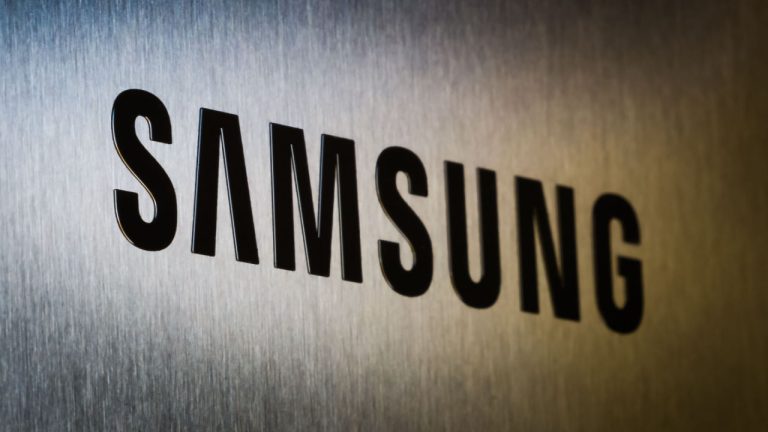
Prominent market analytics firm Santiment says that a trio of altcoins is showing healthy signs moving into 2023. According to the crypto intelligence firm, interoperability blockchain Quant (QNT), metaverse protocol Decentraland (MANA) and Ethereum-based (ETH) gaming blockchain Enjin Coin (ENJ) may have bright futures ahead of them. Santiment says there is a sharply diminishing supply […]
The post Quant (QNT), Decentraland (MANA) and One Ethereum-Based Altcoin Showing Good Signs for 2023: Santiment appeared first on The Daily Hodl.

Leading crypto market intelligence firm Arcane Research is weighing in on the performance of several crypto sectors after a year-long bear winter. In a new annual review, the intelligence firm notes that the metaverse sector suffered an 89% drawdown this year after serving as one of 2021’s killer narratives. Alternative layer-1s represented the second-worst performing […]
The post These Are the Best and Worst-Performing Crypto Sectors in ‘Year of Expensive Lessons’ 2022: Arcane Research appeared first on The Daily Hodl.
 Tokio Marine, the biggest property/casualty insurance group in Japan, is taking its services and operations into the metaverse. The group, which has more than 39,000 employees all over the world, will allow its users to review and purchase insurance products on a metaverse platform, using real employees as clerks in the virtual world. Tokio Marine […]
Tokio Marine, the biggest property/casualty insurance group in Japan, is taking its services and operations into the metaverse. The group, which has more than 39,000 employees all over the world, will allow its users to review and purchase insurance products on a metaverse platform, using real employees as clerks in the virtual world. Tokio Marine […]
Metaverse adoption has slowed down in 2022, but investors’ and developers’ enthusiasm remains. Here’s an overview of the tech’s last 12 months.
Recognized as one of the most turbulent years for the cryptocurrency and blockchain industry, 2022 has still been vigorous for the metaverse. With over $120 billion invested in the first half of the year alone — according to a McKinsey report — the industry is anything but broken.
Some of the most significant partnerships to date were sealed throughout 2022, with even a few unexpected institutions — JP Morgan, for instance — embracing the Web3 revolution despite their proverbial distaste for the decentralization concept.
Here’s what you need to know about the influential developments, projects and events that shaped the metaverse in 2022.
The metaverse, first coined by Neal Stephenson in his 1992 sci-fi novel Snow Crash and described as a computer-generated universe accessible through highly specialized goggles, has developed into a multibillion-dollar industry that incorporates different concepts and technologies.
These underlying technologies include blockchain, artificial intelligence (AI), the Internet of Things, augmented reality (AR), virtual reality and space from gaming applications to real estate, fashion and interoperable collaborative tools.
All these ingredients are used together in the metaverse — in a centralized or decentralized manner — to create environments for rich user interaction among an unlimited number of users simulating the real world.
The gap between centralized and decentralized metaverse platforms has widened further in 2022, with The Sandbox and Decentraland holding strong dominance across blockchain-based marketplaces. On the other hand, Meta’s and Microsoft’s vision to build proprietary digital universes they control entirely accentuated the distance between the two digital cultures.
In its current form, and regardless of its digital culture, the metaverse relates to digital worlds accessible by immersive technologies and the internet. All developments experienced today are considered “pre-metaverse,” and a recent report by Gartner doesn’t expect mainstream adoption and full technology maturity until 2030.
Related: Which celebrities joined and left crypto in 2022?
Nonetheless, institutions and businesses are aware they have to start crafting their strategy now if they want to be leaders in what will surely be a highly competitive space in the next few years.
Facebook rebranded to Meta in October 2021, marking its commitment to advance from its past as a social media network and embrace the new world of Web3. However, despite announcing investments between $10 billion and $15 billion per year, the company reported some significant losses in 2022, with its stock price falling 23.6% after its release, 66.29% over the past year and an accumulated loss of $9.44 billion in the research and development department.

Microsoft announced this year the $69-billion acquisition of the gaming company Activision Blizzard, one of the key players in the industry, with a growing portfolio of AAA (high-budget and high-profile) video games and nearly 400 million monthly active users.
However, the deal is still being scrutinized by regulators, with the United States Federal Trade Commission challenging one of the most significant tech acquisitions in history to promote fair competition in high-performance gaming consoles and subscription services.
Nvidia launched the beta version of its new “omniverse” platform for developers. The versatile platform allows everyone to build metaverse applications. For instance, artists can pick from multiple 3D tools, developers can make use of AIs trained in virtual worlds, or enterprises can build digital twin simulations of their industrial processes.
Major financial institutions have expanded their presence in the metaverse in 2022 by partnering with some of the most powerful platforms in the space.
In February, JP Morgan became the first major bank to enter the metaverse, opening a virtual lounge in the blockchain-based Decentraland platform after labeling the industry as a $1-trillion market opportunity.
The same month, Disney announced it had appointed a new executive, Mike White, to lead its debut into the metaverse. Disney CEO Bob Chapek confirmed Disney’s commitment to expanding its storytelling expertise to the digital world. “We have an opportunity to connect those universes and create an entirely new paradigm for how audiences experience and engage with our stories,” said Chapek.
In March, HSBC bank and blockchain-based gaming platform The Sandbox announced a new partnership to open new opportunities to their global virtual communities, which will be able to connect through entertainment, gaming and user-generated content.
Delighted to announce we’ve partnered with @HSBC, one of the world’s largest international banking & financial services providers!
— The Sandbox (@TheSandboxGame) March 16, 2022
Bringing a host of opportunities to engage with global financial services & sports communities in The Sandbox Metaverse.https://t.co/GmQ3lrVmnB
Standard Chartered also joined forces with The Sandbox in April to offer their client base new creative and innovative experiences. As Alex Manson, head of SC Ventures at Standard Chartered, confirmed, “We have been building business models in crypto, digital assets and see the rise of the metaverse as a critical milestone in the Web 3.0 evolution.”
In June, innovation and design company Journey rang the first-ever opening bell in the metaverse alongside Nasdaq to celebrate the launch of a new metaverse studio and mark a specific endorsement of the industry by the stock market exchange.

Norwegian governmental agency The Brønnøysund Register Center sealed a partnership with Ernst & Young in October to open a virtual office location in Decentraland’s metaverse. The Norwegian authority manages several public registers for the country, and the move is meant to facilitate users’ access to public services in anticipation of the widespread use of the metaverse, especially by the younger crowds.
The technology has opened great opportunities for primary retailers — especially in luxury goods — to build their presence and gain new market segments by creating their own virtual spaces in the metaverse.
@Burberry's very first NFT is @PlayBlankos Sharky B.
— jasonx.eth (@DCLjasonx) September 4, 2021
Limited to only 750. I believe this to be one of the most important collectible. Fashion, Design, Brand, Art. It has it all. pic.twitter.com/zr4dmteoFT
Brands such as Gucci, Louis Vuitton and Burberry all started appearing in the metaverse, with fashion topping the luxury market industry in terms of presence in the space. The industry’s expansion was further marked by the inaugural metaverse Fashion Week, held in Decentraland in March.
We’re taking NFTs to the next level. Exclusive to CryptoPunks holders, NFTiff transforms your NFT into a bespoke pendant handcrafted by Tiffany & Co. artisans. You’ll also receive an additional NFT version of the pendant. Learn more: https://t.co/FJwCAxw8TN #NFTiff #TiffanyAndCo pic.twitter.com/pyKlWejHv4
— Tiffany & Co. (@TiffanyAndCo) July 31, 2022
The year’s bearish trends in the crypto space were echoed across the virtual real estate market, too. Land sales were reported to have dramatically dropped by 85% in August, while volumes plunged from a peak of $1 billion in November 2021 to approximately $157 million in August.
Despite the negative figures this year, the expectations for this section of the metaverse are still very promising, even more so when compared to the real-world real estate market. According to a Chainalysis report, blockchain-based virtual land prices have grown by 879% since 2019, while physical real estate prices only grew by 39%.
Blockchain-based platform Decentraland is still where most of the action takes place in the real estate market, and it’s seen astounding growth materializing in front of its eyes, as confirmed by Decentraland Foundation creative director Sam Hamilton:
“When we first sold land, it was all sold at $20 a pop, and we sold it all. Now, I think the cheapest you can buy is $3,500. So, you can see the speculators already made a lot of money.”
The industry that experienced an anonymous user reportedly paying $450,000 to purchase a plot of virtual land in The Sandbox next to Snoop Dogg’s virtual residence is not fading away and is anticipated to continue growing.
I’m entering the #metaverse with @TheSandboxGame !! #TSBxSnoopDogg #NFT https://t.co/DZvSV4NNSc pic.twitter.com/zoa87iDhRl
— Snoop Dogg (@SnoopDogg) September 23, 2021
According to global market research firm Technavio, the virtual real estate market is expected to grow $5.37 billion by 2026 at a compound annual growth rate of 61.74%. Buying and owning land in the metaverse could also be a very lucrative business for rentals, so much so that Decentraland launched a dedicated platform to allow its users who own virtual land to become landlords.
The entertainment and arts industries sparked more interest in the metaverse in 2022, with plenty of live concerts, festivals and art events entertaining a young crowd seeking opportunities beyond geographical limits.
Nonfungible token (NFT) collections and exhibitions are always at the center of the metaverse experience, while live concerts dominate the entertainment. Music stars, such as Ozzy Osbourne, performed in the metaverse in November 2022, and the famous U.S. festival Coachella embraced the metaverse utilizing AR technology, video games and NFTs that both physical and virtual attendees could enjoy.
I hope you enjoyed @TheOzzFest 2022 in the #Metaverse! #ozzfest pic.twitter.com/vS4N023Z3f
— Ozzy Osbourne (@OzzyOsbourne) November 22, 2022
There are all reasons to believe the metaverse will forge into something that can be defined more accurately over the next few years leading to 2030. As this is still widely recognized as the pre-metaverse phase, the tech will evolve into its advanced state between 2024 and 2027.
In the advanced phase, the technologies developed in the emerging stage will converge to create methods to link physical and digital spaces in a navigable way and make the user experience more straightforward and suitable for mainstream usage.
Related: Bitcoin underperforms stocks, gold for the first time since 2018
In the mature phase that follows, the metaverse will be complete with interoperability, collaboration and multi-sourced experiences, allowing more efficiency across every aspect of human lives.
Gartner has predicted that by 2026, at least 25% of the world’s population will have spent one hour a day in the metaverse, while the predictions for the market opportunities are mind-blowing. From $1 trillion, estimated by Grayscale, to $5 trillion, predicted by McKinsey, the future could not look brighter for the tech and its ecosystem.
With such figures, who will remember the 2022 bear market?

Fidelity Investments has filed a trademark application that reveals the financial services giant’s plans for the metaverse and digital collectibles. On digital collectibles, Fidelity Investments says in the trademark application dated December 21st that it plans to offer an “online marketplace for buyers and sellers of digital media, namely, non-fungible tokens (NFTs) featuring textual and […]
The post Financial Giant Fidelity Files Trademark Applications for NFT Marketplace in the Metaverse appeared first on The Daily Hodl.
 Gumi, a Japanese mobile gaming company, has partnered with Square Enix and SBI Holdings to build new business opportunities around the metaverse. The deal, which also includes the issuance of new stock valued at $52.7 million dollars, will allow the company to acquire financial and content creation experience. Gumi Raises $52.7 Million in Metaverse-Driven Alliance […]
Gumi, a Japanese mobile gaming company, has partnered with Square Enix and SBI Holdings to build new business opportunities around the metaverse. The deal, which also includes the issuance of new stock valued at $52.7 million dollars, will allow the company to acquire financial and content creation experience. Gumi Raises $52.7 Million in Metaverse-Driven Alliance […] The Argentine Soccer Association, AFA, has partnered with Upland, a virtual world platform, to introduce its fans to the metaverse. Upland will allow Argentine fans to have a bigger connection with AFA history, presenting the opportunity to acquire digital representations of several properties of the league, including clubs, games, historical moments, and even tickets. Argentine […]
The Argentine Soccer Association, AFA, has partnered with Upland, a virtual world platform, to introduce its fans to the metaverse. Upland will allow Argentine fans to have a bigger connection with AFA history, presenting the opportunity to acquire digital representations of several properties of the league, including clubs, games, historical moments, and even tickets. Argentine […]
Newly filed trademark applications outline a long list of possible avenues for the firm in the metaverse.
Investment giant Fidelity Investments has filed trademark applications in the United States for a host of Web3 products and services, including a nonfungible token (NFT) marketplace and financial investment and crypto trading services in the metaverse.
This is according to three trademark filings submitted to the United States Patent Trademark Office (USPTO) on Dec. 21, which was highlighted by licensed trademark attorney Mike Kondoudis in a Dec. 27 tweet.
#Fidelity has plans for the metaverse!
— Mike Kondoudis (@KondoudisLaw) December 26, 2022
The company has filed 3 trademark applications covering
▶️ NFTs + NFT Marketplaces
▶️ Metaverse Investment Services
▶️ Virtual Real Estate Investing
▶️ Cryptocurrency Trading
... and more!#NFTs #Metaverse #Crypto #Web3 #Defi #Finance pic.twitter.com/op9fg80e7z
One of the key areas of the firm’s focus appears to be the metaverse, with Fidelity indicating that it could offer a wide range of investment services within virtual worlds including mutual funds, retirement funds, investment management and financial planning.
It also appears that metaverse-based payment services could be in the works, including electronic bill payments, fund transfers and the “financial administration of credit card accounts in the metaverse and other virtual worlds.”
In terms of crypto, the filings indicate that the firm could launch trading and management services in the metaverse, along with providing virtual currency wallet services.
“Electronic wallet services in the nature of electronic storage and processing of virtual currency for electronic payments and transactions via a global computer network; digital currency, virtual currency, cryptocurrency digital token,” the filing reads.

Additionally, Fidelity outlines that it could offer educational services in the metaverse in the form of “conducting classes, workshops, seminars and conferences in the field of investments and in the field of marketing financial services.”
“Providing business information to financial service providers by means of an internet web site, in the field of business marketing in the metaverse and other virtual worlds; referral services in the field of investment advice and financial planning in the metaverse and other virtual worlds” one filing reads.
NFTs are also in Fidelity's plans, with the investment manager stating that it could launch an “online marketplace for buyers and sellers of digital media, namely, non-fungible tokens,” however further details on such are sparse.
Related: Current infrastructure can't support the metaverse, says Huawei report
The latest filings from Fidelity show that the firm has not been spooked by the intense bear market in 2022 and recent FTX implosion, and is instead looking to increase its exposure and offerings in Web3.
The firm essentially outlined as such and called for stronger regulation when responding to a Nov. 21 letter from crypto-hating senators Elizabeth Warren, Tina Smith and Richard Durbin, which had called on Fidelity to reconsider its Bitcoin (BTC) retirement products due to the “volatile, tumultuous and chaotic” nature of crypto assets.
A Fidelity spokesperson told Cointelegraph at the time that the company "has always prioritized operational excellence and customer protection" and noted that "recent events" in the crypto industry have only "underscored the importance of standards and safeguards."
It is also worth noting that back in October, Fidelity was reportedly looking to beef up its crypto unit by hiring 100 new staff members, a stark contrast to a number of crypto firms that have laid off a significant amount of employees this year.

Pokémon Company International has taken an Australian company to court over advertising an unlicensed NFT-based Pokémon game and HSBC has filed for a host of NFT and Metaverse trademarks.
NFT-friendly Japanese gaming giant Square Enix has invested 7 billion yen ($52.7 million) into game developer Gumi to create “high-quality” mobile games, blockchain games and a Metaverse initiative, among other things.

According to a translation of the press release, the partnership will help Gumi tap certain intellectual property from Square Enix, while it has also teased that the duo could be teaming up for a game-NFT-focused marketplace.
“We are already considering the establishment of a platform dedicated to blockchain games and an NFT marketplace, etc. Through collaboration between the two companies, we will provide a one-stop service from the development and distribution of blockchain games to the sale and distribution of tokens and NFTs.”
The company also outlined plans to work on a host of NFT games that will likely have Metaverse integrations. The Japanese company has outlined a quirky new term called “Wow and Earn” which essentially refers to games built off of world-famous IP that is integrated with blockchain-based Play-to-Earn (P2E) features.
“In the future, while considering the use of powerful content that everyone recognizes, we will break away from the highly speculative blockchain games of the past and create value while enjoying fun and excitement. We strongly recognize that it is necessary for game users all over the world to create a blockchain game that realizes ‘Wow and Earn,'" the release reads.
Gumi also stated that its “working day and night” to develop its Metaverse-focused arm of the business, as it looks to add another source of revenue outside of mobile games.
Gumi has previously worked with Square Enix on a couple of mobile games as part of the Final Fantasy Brave Exvius series, and both firms are partners of the Oasys blockchain-gaming project, which is building its own network designed purely for P2E gaming.
Michael Winkelmann, the widely successful digital artist also known as Beeple, believes that all physical art in the future will one day have an NFT attached to it.
Speaking with the Wall Street Journal on Dec. 23, Beeple suggested that NFTs will massively help the art industry by providing superior methods for tracking provenance and storing verifiably authentic data.
“I think all paintings will eventually have NFTs attached just because again, it's a better system than just handing you a piece of paper,” he said, adding that:
“If you had a standardization around ‘this is a painting,’ you could have all the provenance in the metadata of that NFT. You could have [that data on] where that painting was shown. So it’s all there and it's searchable in a database.”
As such, he thinks that NFTs will eventually help build a standardized art database that “everyone relies on.”

Pokémon Company International has taken an Australian company to court over advertising an unlicensed NFT-based Pokémon game, according to documents lodged with the Federal Court of Australia.
The company in question is called “Pokémon Pty Ltd” and it has been advertising an unlicensed “metauniverse” P2E game on Ethereum called Pokeworld.

On its website, it also claims to work on a host of official Pokemon games in the past, while it also claims to have an official partnership with Pokémon Company International.
However in the court documents, the Pokemon IP holders are seeking to restrain Pokémon Pty Ltd from representing that they hold any license, partnership or rights to sell Pokemon NFTs.
It has also called for the company to halt the launch of the game, promote it using Pokemon trademarks on its website and social media.
British multinational mega bank HSBC has filed virtual trademarks for its name and logo, outlining potential plans for a host of NFT, blockchain and Metaverse products.
In its filing, highlighted by licensed trademark attorney, Mike Kondoudis via Twitter on Dec. 23, the HSBC lists a host of products and services including downloadable NFT virtual goods and files, virtual world friendly debit cards, NFT music and video content files.
The Metaverse appears to be a keen focus in the filing, as it also states that it is looking at providing financial advisory and entertainment services in the Metaverse and other virtual worlds.
#HSBC has filed trademark applications for its name and logo. The applications indicate plans for:
— Mike Kondoudis (@KondoudisLaw) December 23, 2022
▶️ Digital media backed by NFTs
▶️ Virtual currency exchange + transfer
▶️ Virtual credit card processing
…and more!#NFTs #Metaverse #Cryptocurrency #Blockchain #Crypto pic.twitter.com/RK1yegoYIh
Hackers linked to North Korea’s Lazarus Group are reportedly behind a massive phishing campaign targeting NFT investors — utilizing nearly 500 phishing domains to dupe victims.
NFT marketplace OpenSea has been banning artists and collectors from Cuba, citing United States sanctions as the key reason behind its action.
 Samsung, the Korean electronics behemoth, has revealed it is currently investing more than $35 million dollars in metaverse initiatives for the Latam audience. The objective behind this move is to help the brand attract and connect with younger audiences, as part of its digital push and growth marketing strategy. Samsung’s Metaverse Push in Latam Many […]
Samsung, the Korean electronics behemoth, has revealed it is currently investing more than $35 million dollars in metaverse initiatives for the Latam audience. The objective behind this move is to help the brand attract and connect with younger audiences, as part of its digital push and growth marketing strategy. Samsung’s Metaverse Push in Latam Many […]